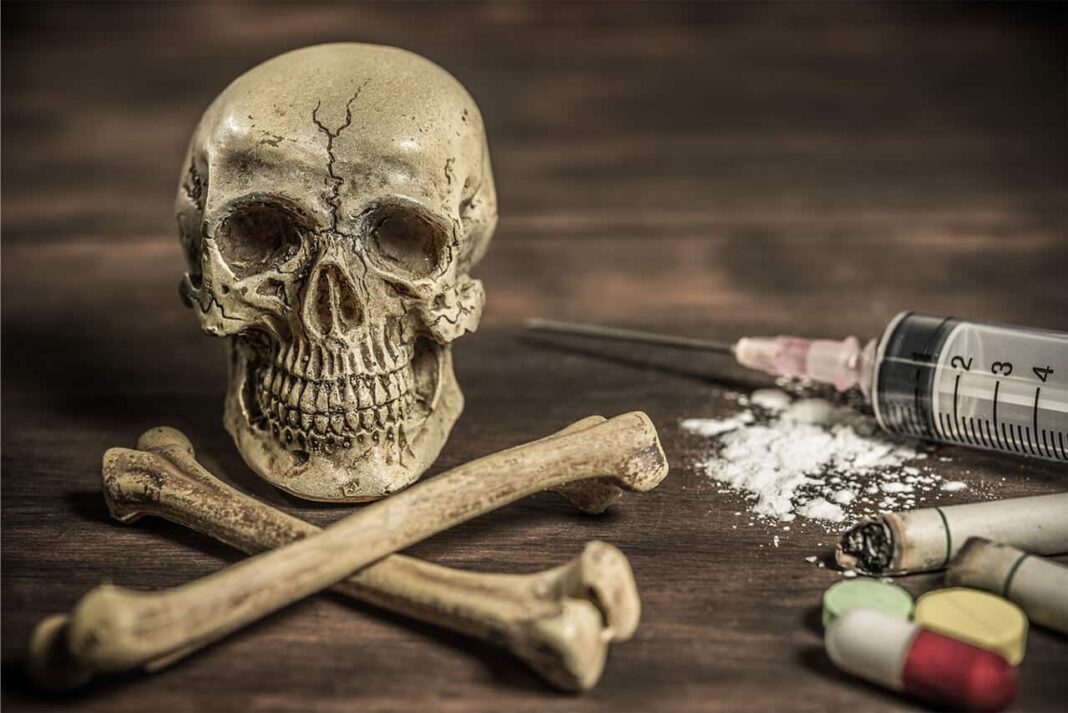War doesn’t just leave bullet holes and ruins on the battlefield; it also inflicts deep, long-bleeding wounds on the human psyche that are often overlooked. As psychologists, we observe that one of the most insidious and pervasive consequences of this destruction is the onset of substance use disorders (SUDs), initiated by the desperate search for an escape from traumatic experiences. For those who witness the horrors of war, alcohol or drugs tragically become a dangerous “balm” that temporarily numbs the painful emotions.
The Traumatic Escape: The Self-Medication Fallacy
War is synonymous with death, loss, and absolute helplessness. These experiences keep the brain’s alarm system permanently engaged, leading to chronic anxiety conditions like Post-Traumatic Stress Disorder (PTSD). The debilitating symptoms of PTSD, such as nightmares, intrusive memories (flashbacks), and being constantly on guard (hypervigilance), make an individual’s daily life unbearable.
This is precisely where a behavior we term “self-medication” in the literature comes into play. The person suffering from trauma turns to substances for instant relief from overwhelming emotional pain or persistent arousal. Alcohol quickly reduces anxiety; drugs suppress traumatic thoughts. This momentary relief reinforces the cycle, compelling the individual to seek substances again during the next wave of distressing emotions.
This situation accelerates the development of dependence, forming a challenging comorbidity (dual diagnosis) profile:
-
Symptom Management: The substance is essentially used as a tool to manage the symptoms of underlying PTSD.
-
Emotional Numbing: Dependence prevents the individual from confronting the traumatic event and developing healthy coping mechanisms.
Studies show that a significant proportion of individuals receiving treatment for alcohol or drug dependence (30% to 60%) also suffer from PTSD stemming from war, sexual violence, or other severe traumas (Dalbudak, 2018). This co-occurrence significantly complicates the treatment process.
High-Risk Groups for Dependence
Dependence is prevalent among both military personnel and civilian victims of war:
Military Personnel
Soldiers directly involved in conflict zones are at high risk due to the stress and violence experienced during combat. For veterans returning home, lack of emotional support, difficulties in social reintegration, and high levels of internal tension can easily lead to alcoholism and drug dependence (Tarhan, 2019).
Civilian Victims
Civilians living in war zones, in addition to suffering traumas like forced displacement and the loss of loved ones, are often exposed to horrific events like sexual violence, particularly women. Substance use as a means to cope with and escape these traumas is a severe problem among these groups (Dalbudak, 2018).
A Holistic View on Treatment
Treating dependence rooted in war trauma cannot focus solely on achieving abstinence. An integrated (holistic) approach is essential for successful recovery.
The primary goal of treatment must be to eliminate the individual’s need to use substances as an “escape route.” This requires processing the trauma itself:
-
Trauma-Focused Psychotherapy: Priority should be given to evidence-based trauma therapies such as Cognitive Processing Therapy (CPT). These methods help the individual process traumatic memories and alleviate PTSD symptoms. As the trauma load lessens, the reliance on substances begins to diminish.
-
Emotional Regulation Skills: The individual must be taught new, healthy strategies to cope with triggering emotions like anger, anxiety, or loneliness without resorting to substances.
-
Social Support: Dependence is not just an individual wound; it is also a familial and societal wound. Informing and supporting family members regarding trauma and dependence is vital for the treatment process.
Providing non-judgmental, ethical, and comprehensive mental health services to these individuals—who carry the psychological burden of war and struggle with dependence—is our most crucial duty as psychologists. Because lasting peace begins with the psychological balance an individual establishes within themselves.
References
Dalbudak, E. (2018). Travma Sonrası Stres Bozukluğu ve Bağımlılık [Post-Traumatic Stress Disorder and Addiction]. Prof. Dr. Ercan Dalbudak Web Sitesi. Retrieved from
https://www.ercandalbudak.com/travma-sonrasi-stres-bozuklugu-ve-bagimlilik/
İstanbul Bilgi Üniversitesi. (2017). Travmatik Yaşantıların ve Madde Kullanımının TSSB’ye Etkisi [The Effect of Traumatic Experiences and Substance Use on PTSD] (Unpublished master’s thesis). Retrieved from
https://openaccess.bilgi.edu.tr/bitstreams/8747878c-3e0c-42f8-85c9-61edd40892b8/download
Şar, V. (2018). Savaş ve Terör Yaşantılarında Travma Sonrası Stres [Post-Traumatic Stress in War and Terror Experiences]. Eurasian Arch Med Res, 52(1).
Tarhan, N. (2019). Prof. Dr. Tarhan: “ABD askeri, kola içemediği için bile travma yaşayabiliyor” [Prof. Dr. Tarhan: “US soldier can experience trauma even for not being able to drink cola”]. Üsküdar Üniversitesi Haber. Retrieved from
https://uskudar.edu.tr/haber/prof-dr-tarhan-abd-askeri-kola-icemedigi-icin-bile-travma-yasayabiliyor/4532


